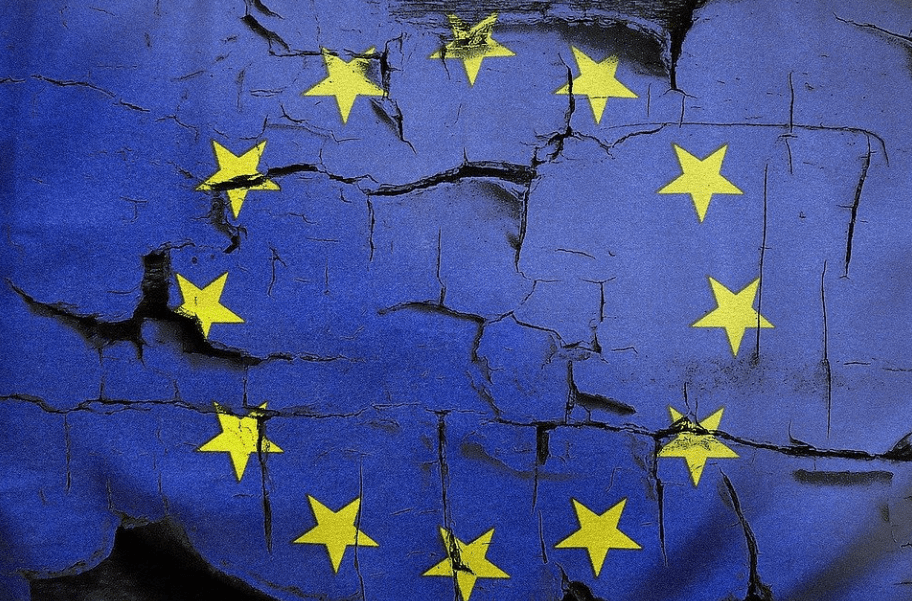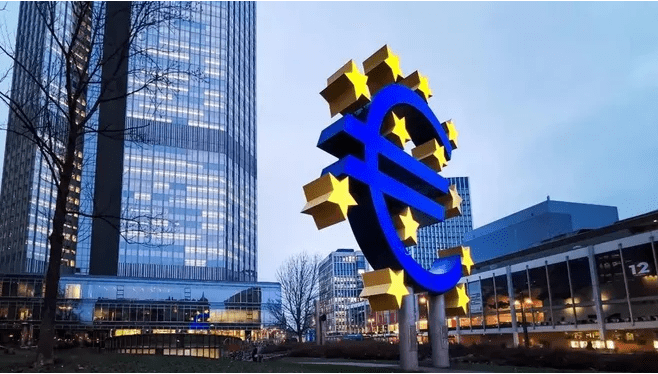With the ECB’s decision to raise key interest rates in the euro zone by 0.5 percent, negative interest rates for banks and savers are history. However, this does not mean that worries about a euro crisis have completely evaporated.
source website/ N-TV.de The first step is much bolder than expected: At their last meeting in Amsterdam six weeks ago, ECB President Christine Lagarde and the Governing Council of the European Central Bank had still decided to raise interest rates only moderately by 0.25 percent on July 21. Now they are taking a double-step, raising the three key interest rates by 0.5 percent each.
With this move, the ECB today not only announced the first increase in the key interest rate in eleven years, but it also put an end to the period of negative interest rates in one fell swoop. Many observers had not actually expected the latter until September. That’s when the ECB plans to follow suit and raise interest rates again. Lagarde deliberately left open the extent of this second step at the press conference: “We will proceed step by step and evaluate the data month by month,” she said. Whether the September rate step will be 0.25 percent or 0.5 percent will be decided by the ECB’s governing body just before its Sept. 8 meeting, she said.
- Astronomers have solved Jupiter’s ring mystery
- “Still another notch up” Network agency: gas savings still not enough
- Proposed $350 million judgment in the T-Mobile breach lawsuits
Moving away from negative interest rates is not a historic step for her personally, the ECB chief said. She considers the introduction of the new bond purchase program, TPI, more memorable: “It is a historic moment, at least for me, that the entire ECB team, that is, 25 members of the body, decided in complete unanimity to introduce a new instrument that we consider critical to guarantee market stability. This is a gratifying moment,” Lagarde stressed. TPI is intended to prevent heavily indebted euro countries from running into financing difficulties as a result of interest rate increases.
Assessment of many market observers has turned around
Already in the course of this week, many market observers had speculated about whether the historic interest rate step might not be higher than the previously envisaged target. Christine Lagarde herself had already indicated at the end of June that it could well be more than 0.25 percent. Because: “There are clearly conditions under which gradualism would not be appropriate.” The ECB now apparently sees these as a given. In the course of this week, it also leaked out from central bank circles that there could be a larger interest rate step – the markets hardly reacted to this.
In fact, a clear signal is urgently needed against the ever-increasing inflation, which has now reached 8.6 percent for Europe as a whole. In individual countries such as Estonia and Lithuania, the rate of inflation is already more than 20 percent, and in Germany it is a whopping 8.2 percent. “And the risk that it will continue to rise and spread across the board is great,” Lagarde stressed several times. That, she said, was the main impetus for the ECB decision. Some economists still expect price increases to reach the ten percent mark across Europe by September.
The main trigger for the high price increases is the Ukraine war, which has made energy enormously more expensive and caused food prices to rise. But the interrupted supply chains in Asia as a permanent consequence of the Corona pandemic are also contributing to the fact that raw materials, goods and consumer goods are becoming steadily more expensive. Added to this is the “imported inflation” that is spilling over to us from America: Because the U.S. central bank, the Fed, has long ruled, interest rates there are already respectably high again at 1.5 to 1.75 percent. That’s why the dollar is strong – and is now making imports of goods from the USA more expensive. And these factors will continue for a while.
This is why the assessment of many market observers has recently changed: In the spring, many analysts were still praising the ECB’s prudent course. It was preparing the financial markets well for this first interest rate hike, they said. Gradually and without provoking shocks. No one could say in July that they had not been able to foresee the interest rate turnaround and therefore had to abruptly withdraw their money from certain securities. Overall, the ECB is under pressure, many were saying just a few weeks ago, but it is ahead of the inflation bow wave, unlike the U.S. Fed.
Italy finds itself in a tangible government crisis
Just a few weeks later, the criticism grew louder. That’s when inflation of nearly nine percent swept across the European continent, and the end of price increases is far from in sight. Many people currently consider the ECB itself to be a gearhead, because it has not acted before, but has delayed the first interest rate step for so long. Incidentally, it is one of the very few central banks in the world to have done so, as more than 75 other central banks have already reacted to the high price phase.
The ECB probably hesitated for fear of triggering a new European debt crisis. Especially with regard to Italy. The southern European country has not only been struggling for some time with a debt of around 150 to 180 percent of its economic strength (depending on how it is calculated), but is now also in the midst of a serious government crisis.
Italy’s head of government and Lagarde’s predecessor, Mario Draghi, has resigned. In the eyes of many financial market participants and EU politicians, he is one of the last guarantors of stability. If anyone could have stabilized the country economically and fiscally, it was him. Now, however, Italy is lurching toward new elections, and no one knows what the outcome will be.
This is why the ECB has recently been struggling so tenaciously to find the right course: between the need to raise interest rates and thus calm inflation, and the danger of thereby choking off the economy and overburdening the debt sustainability of individual countries. They are less able to refinance themselves at higher interest rates.
Controversial instruments against spreads
With every week that has gone by so far, people in this country have become accustomed to the phase of rising prices. As a result, the upward pressure on prices is itself intensifying. Because the wage-price spiral is gradually getting underway as employees everywhere demand higher wages because of higher prices, and they get them because employers don’t want to lose any more skilled workers. However, this happens at the cost of companies passing on the higher wage costs to prices, causing them to spiral even higher. It is precisely this upward spiral that the ECB must now stop with higher interest rates, because otherwise it will become more difficult with each passing day.
On Thursday, however, the market was even more eagerly awaiting the plans for the “Transmission Protection Instrument” (TPI), which had already been the subject of much speculation. With this so-called anti-fragmentation instrument, the ECB wants to prevent the interest rate increases from having too much of an impact on the interest rates for government bonds, thus putting Italy in particular in a tight spot. The ECB wants to prevent the euro zone from splitting into weaker countries with high bond spreads and stronger countries with small spreads.
Under certain conditions, it wants to buy government bonds of high-yield countries and reinvest expiring funds so that the papers are not bought up on the free market by speculators who want to bet against the solvency of such countries. And it would do so if there was an immediate risk that there would otherwise be severe market dislocations throughout the European financial market, Lagarde said, explaining the TPI introduction. The instrument was explicitly intended “as a protective shield for all euro countries” in an emergency.
The extent of purchases under the TPI would depend on the severity of the risks to monetary policy transmission, the central bank said. What is clear, however, Lagarde said, is that “the ECB has the capacity and scale” for such interventions; “there is no ex ante limit on the program.” This is reminiscent of Draghi’s famous “whatever it takes.” However, the extent to which the ECB is still within its legal framework with the TPI, or whether this does not already fall under the non-permissible financing of individual states, is highly controversial.
Markets unsettled
Ifo head Clemens Fuest, for example, warns, “There is a danger that the ECB is crossing the line into sovereign financing here, jeopardizing its independence and setting the wrong incentives for fiscal and economic policy.” ZEW economist Friedrich Heinemann takes a similar view: “The ECB is thus increasingly becoming the authority that decides on the financeability of high government debt and thus also on the fate of governments,” he said after the decision. “That is not compatible with the monetary policy task of an independent central bank.”
Market observers initially reacted positively to the sharp interest rate hike: “It’s good that the ECB Governing Council has come around to a major interest rate move,” said ZEW economist Heinemann. ING Bank announced immediately after the decision that it would now eliminate the penalty interest rates for all customers. It also plans to offer existing customers up to 1.5 percent interest in the future and will introduce a savings certificate with terms of between one year and five years starting Aug. 1. “Today’s ECB decision shows where the interest rate journey is heading,” said ING’s head of Germany Nick Jue.
The fact that the ECB now sees itself as a hawk and inflation fighter is a good thing, said Deka chief economist Ulrich Kater, “because the responsibility for inflation lies exclusively with the central bank and no one else.” The end of negative interest rates would also be the end of the “monetary land of milk and honey.” On the stock markets, the vote was not quite so clear. The Dax initially fluctuated strongly and, after a rise in the afternoon, lost significantly. At one point it was only just above 13,100 points. The MDax and Eurostoxx reacted similarly. Italian government bonds also initially fell sharply.





